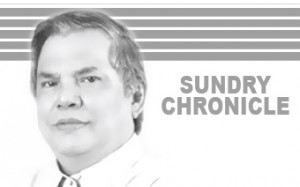Theoretically federalism is the union of different states with different system of governments. What holds them together is the desire to be united even if they have differences.
The Spaniards came to the Philippines and conquered an archipelago with diverse political and economic systems. The Spaniards imposed a central government but basically did not alter the existing systems except those that were affected by imposing Christianity.
At the end of the Spanish regime the archipelago was composed of many regional ethnic groupings, tribes, and sultanates. These groups had a desire for a federal form of government when they successfully revolted against the Spaniards.
However, the nascent federal government was defeated by the Americans who imposed a central government and educational system that centralized and unified the archipelago into the present form of centralized government.
It has now a form of government that is “Manila-centricâ€. It is as if Metro Manila is the Philippines and the Philippines is only Metro Manila.
There is now a desire to decentralize the government through a federal form of government. The main concern is can it be done with the many political and economic systems existing in the Philippines?
Different Political Systems
The Philippines claim to be a democracy that has a republican form of government. However, since the 1930s there has been a group in rebellion that claims to have a communist form of government.
In Mindanao there has always existed the different Islamic Sultanates that claims to be separate from the Philippines Government. In the Islamic system of government, the Koran is higher in authority than the Constitution.
The different ethnic tribes have also their own concept of a political system In Central Luzon they are recognized as the Cordillera Region.
In the Philippines there are many places that has a “Theocracry†or religious form of government. At present it may not affect the central government but if and when the form of government is changed to federalism, these “Theocracies†can affect the State governments.
At present there is even a controversy whether the form of government to be used is the Presidential or Parliamentary form.
With perceived variations in the political systems there is no perceived unifying force that can hold together the whole Philippines under a diverse political system. Can we really hold the Philippines together with half democratic and half Islamic Theocracy?
If the Muslims will insist that the Koran is a higher authority than the Constitution, will the Christians also insist that the Bible will be higher than the Constitution?
Different Economic Systems
At present the Philippines is following the “Capitalism†form of economic system. However, many laws are now implemented that are “Socialist†or even “Communist†economic systems.
The implementation of the Comprehensive Agrarian Reform Program (CARP) belongs to Socialism or Communism. The giving of the “Conditional Cash Transfer†to the poor is a form of socialism. It follows the communist doctrine of “From everyone according to his capacity and to everyone according to his needsâ€.
The operation of mines, manufacturing firms, and other activities that are based on “capital and profit†is the main economic engine of a country or State.
Supposing a proposed State is so blessed with power generation resources that capitalism is very viable, how shall you compare it to a State that mostly agricultural where the CARP had been implemented? Will the profit producing State be willing to subsidize the “socialized†States? The situation is very inviting for conflicts.
My opinion is to first search for the “holding†or “unifying†aspects for federalism before we embark into the “devolution†of the centralized form of government. (By Jes B. Tirol)

